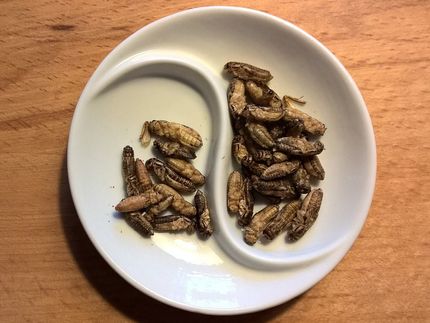Ÿnsect: The First Company to Obtain Authorization to Commercialize Mealworm Proteins for Dog Food in the United States
As one of the strongest players in the production of insect-based proteins and with the first customer received their delivery in December 2023, Ÿnsect sees its commercial prospects rapidly expanding with the opening of the American pet food market. The AAFCO, the American authority responsible for the safety of animal food, has, for the first time, authorized the commercialization of an ingredient derived from mealworms (Protein70) for dog nutrition. Studies conducted in the United States of America in collaboration with Summit Ridge demonstrate both the safety of Tenebrio molitor flour and its nutritional benefits. With this first authorization in the American market, Ÿnsect is poised to actively contribute to reducing the environmental impact of pet and dog nutrition.
“We are very proud to have obtained the very first authorization for the commercialization of mealworm-based ingredients for pet food in the United States. It is the recognition of over 10 years of research for the benefit of animal health. This authorization opens the doors to the immense American market just as we are preparing to deliver our first pet food customers from our Amiens farm.” Shankar KRISHNAMOORTHY, CEO of Ÿnsect .
First Authorization for the Use of Tenebrio molitor in Pet Food in the United States
After 2 years of evaluation, the AAFCO, the organization responsible for the safety of animal food in the United States, has, for the first time, authorized the commercialization of Ÿnsect ingredients based on Tenebrio molitor, specifically defatted Tenebrio molitor meal (Dried Mealworm Meal), intended for dogs. This authorization was granted based on a comprehensive scientific dossier, including a 6-month trial introducing mealworm-derived ingredients into the diet of dogs. The results demonstrated both the safety of the product and its nutritional benefits as a substitute for commonly used animal proteins. As of October 2023, the FDA’s scientific committee provided a favorable opinion. The official journal publication in a few weeks will validate the rigorous process of the American authorities.
The pet food market in the United States is valued at over $42 billion
Americans are particularly devoted to their pets. According to the American Veterinary Medical Association (AVMA), nearly 4 out of 10 American households have a dog (48%), totaling over 65 million dogs across the United States. In 2022, the market for pet products was valued at approximately $136 billion, with $42 billion dedicated solely to the pet food market, as reported by the American Pet Products Association (APPA). This market continues to grow, with a roughly 5% growth rate, according to a recent report by TechNavio experts.
“American pet owners are very attentive to the well-being of their pets, including providing appropriate nutrition. Our discussions with key players in the pet food market led us to anticipate significant development in alternative meat proteins in this market.” Philippe Pichol, SVP Chief Sales & Marketing Officer at Ÿnsect.
Proven Nutritional Quality
As part of the authorization request submitted to the U.S. authorities, Ÿnsect, in collaboration with Summit Ridge Farms, a leading reference in the world of scientific studies in pet food, conducted an extensive 6-month study highlighting the impact on dogs of a diet rich in mealworm-based ingredients. This study ensured the safety of a diet containing up to 30% mealworm proteins. It also demonstrated a very high level of protein digestibility, exceeding 80%, in line with industry professionals’ recommendations (FEDIAF and AAFCO).
Additionally, Ÿnsect collaborated with Professor Kelly Swanson from the Animal Sciences Laboratory at the University of Illinois Urbana-Champaign to study its defatted mealworm flour from Tenebrio molitor. The study showed protein quality comparable to high-quality animal proteins traditionally used in pet food manufacturing, such as beef, pork, and salmon, is superior to standard poultry meal and common plant proteins.
Reducing the Environmental Impact of Pet Food, a Major Challenge
Most pets are carnivores and require a protein-rich diet. The pet food industry has been engaged in research and innovation for several years to reduce the environmental impact of pet diets, gradually incorporating alternative proteins. While Tenebrio molitor flour, Protein70, from the Sprÿng brand has demonstrated its nutritional benefits, it can also help reduce the environmental footprint of pet food by replacing other protein sources. As mealworms are raised from agricultural by-products in cereal-producing regions, their environmental footprint is lower than many other traditionally used ingredients. For example, 1 kg of Sprÿng Protein70 flour emits half as much CO2 equivalent as lamb or soy flour, and 22 times less than beef flour.































































